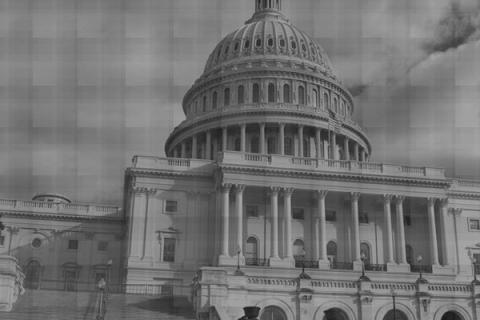Not long after House members were sworn in last week, Georgia Representative Rob Woodall (R) introduced his first bill to establish the FairTax. House Republican, along with a record number of 53 other co-sponsors, are setting their sights on getting H.R. 25 passed during the 113th U.S. Congress.
“The momentum is building for fundamental tax reform and it’s fueled by the American people,” said Woodall in a press statement.
The goal of the FairTax is to replace various taxes—income, corporate, capital gains, estate, gift, alternative minimum, Social Security, Medicare, and self-employment taxes—with a single, national retail sales tax or “consumption tax”.
At a rate of 23 percent, taxpayers would receive a full paycheck and only pay taxes on new goods and services at the point-of-sale.
Woodall and other FairTax supporters see it as the best way to completely restructure and simplify the tax code, effectively "repeal and replace" the Sixteenth Amendment, and pull the government out of the business of tax collecting, resulting in the elimination of the IRS.
For others, the FairTax looks good on paper, but is a shot in the dark in terms of producing effective tax reform.
First off, the retail sales tax would be a federal tax, notwithstanding state and local sales taxes. At a rate of 23 percent, opponents argue that a typical household could see an inflated living budget as families would have to factor in the higher tax rate on basic necessities such as food, clothing, and gas since there is no guarantee that states would forgo their taxes in place of the single consumption tax.
Writing for the Libertarian political and economics think tank, Ludwig Von Mises Institute, Laurence M. Vance further surmises that H.R. 25 would shift tax collecting responsibility into the hands of ordinary businesses as they would have to collect—and report—taxes for each good and service.
According to Vance, this means doctors would charge taxes for their services, and small service businesses and internet companies that currently do not collect state sales taxes would be required to collect the federal sales tax. He sees this as a never-ending funnel for collecting money from taxpayers at every turn.
In the end, Vance believes the FairTax Act is not really “fair” and is “highway robbery” by the federal government.
He writes, “The solution is nothing less than a drastic reduction or wholesale elimination of its revenue source. What is fair about allowing the government to confiscate 23 percent of the value of every new good and service?”
Others are more concerned with the potential black market and possible tax evasion as people would find alternative ways to purchase items for less to bypass the higher tax rate. Rep. Woodall thinks otherwise:
“The beauty of the FairTax is that it effectively makes the underground economy taxable. The folks that operate underground will eventually have to come to the surface to buy milk and bread at the supermarket like the rest of us, and any profits they generate underground will become subject to the FairTax as soon as they walk to the cash register. When FairTax opponents start to worry about the underground milk and bread economy, I think we’ll know we’ve won the debate.”
Yet, the complexity of repealing the Sixteenth Amendment and eliminating the IRS may present some challenges and challenge the constitutionality of the bill.
In many conservative, libertarian, and anti-government circles, the idea of getting rid of the IRS and dismantling the Federal Reserve would serve as the ultimate triumph of the people over tyranny.
FairTax advocates see income taxes as debt collection rather than true revenue generated, as the money is used to pay off debt incurred from the Federal Reserve before it reaches any government programs. They also cite that the Sixteenth Amendment makes income taxes constitutional, which they see as a violation of Article 1, Section 9 of the constitution which details the limits on Congress to collect direct taxes.
The FairTax Act, according to Rep. Woodall, passes the test of both the Section 8, Enumerated Powers clause, and the Limits on Congress clause in Section 9 of Article 1 in the U.S. Constitution. Therefore, it should not face any court opposition. He states that it is an excise tax uniformly applied throughout the nation and it does not tax exports.
Retired representative John Linder, who held Congressman Woodall’s seat for almost 20 years, has been a leader in the FairTax movement for the last couple of years. He wrote The FairTax Book with radio talk show host Neal Boortz, which is one of the first books written on the tax reform.
Linder has put full support behind the measure and looks to Woodall and other young representatives to make the FairTax happen.
Woodall believes the FairTax is the best path to follow on the road to economic prosperity and job security for the future.
“The FairTax addresses so many of the challenges Americans face today," he said. "We can restore America as the primary destination of jobs and investment from around world.”

